|
Books Should Be Free Loyal Books Free Public Domain Audiobooks & eBook Downloads |
|
|
Books Should Be Free Loyal Books Free Public Domain Audiobooks & eBook Downloads |
|
Non-fiction |
|---|
|
Book type:
Sort by:
View by:
|
By: John Muir | |
|---|---|
 Steep Trails
Steep Trails
A collection of Muir's previously unpublished essays, released shortly after his death. "This volume will meet, in every way, the high expectations of Muir's readers. The recital of his experiences during a stormy night on the summit of Mount Shasta will take rank among the most thrilling of his records of adventure. His observations on the dead towns of Nevada, and on the Indians gathering their harvest of pine nuts, recall a phase of Western life that has left few traces in American literature... | |
 Stickeen
Stickeen
A great dog story, a well told tale — the naturalist and adventurer John Muir recounts how he and his companion, a dog named Stickeen, each, alone, confronted and conquered their fears of an icy Alaskan glacier in 1880. | |
By: William E. B. Du Bois (1868-1963) | |
|---|---|
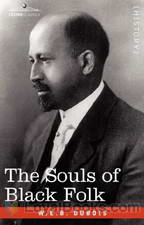 The Souls of Black Folk
The Souls of Black Folk
“Few books make history and fewer still become the foundational texts for the movements and struggles of an entire people....” One such great work was The Souls of Black Folk by William EB Du Bois. Published in 1903, it is a powerful and hard-hitting view of sociology, race and American history. It became the cornerstone of the civil rights movement and when Du Bois attended the first National Negro Conference in 1909, he was already well-known as a proponent of full and unconditional equality for African Americans... | |
By: Gustave Flaubert (1821-1880) | |
|---|---|
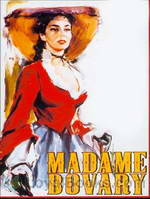 Madame Bovary
Madame Bovary
The strands woven together in Gustave Flaubert's famous, path breaking 1856 novel Madame Bovary include a provincial town in Normandy, France, a shy young doctor with an indifferent career and a lovely young woman who lives in a fantasy world based on the innumerable romantic novels she reads. Of course there is also the story of a dull marriage punctuated by passionate, adulterous love affairs. First published in serial form in a Parisian magazine and deemed to be the “perfect” novel, Flaubert's debut was received by both readers and critics with acclaim and admiration... | |
By: John Donne (1572-1631) | |
|---|---|
 Devotions upon Emergent Occasions
Devotions upon Emergent Occasions
Devotions upon Emergent Occasions is a 1624 prose work by the English writer John Donne. It is a series of reflections that were written as Donne recovered from a serious illness, believed to be either typhus or relapsing fever. (Donne does not clearly identify the disease in his text.) The work consists of twenty-three parts describing each stage of the sickness. Each part is further divided into a Meditation, an Expostulation, and a Prayer. The seventeenth meditation is perhaps the best-known part of the work... | |
By: Saint Augustine of Hippo (354-420) | |
|---|---|
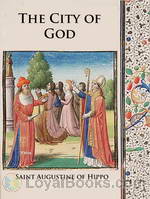 The City of God
The City of God
Rome having been stormed and sacked by the Goths under Alaric their king, the worshipers of false gods, or pagans, as we commonly call them, made an attempt to attribute this calamity to the Christian religion, and began to blaspheme the true God with even more than their wonted bitterness and acerbity. It was this which kindled my zeal for the house of God, and prompted me to undertake the defense of the city of God against the charges and misrepresentations of its assailants. This work was in my hands for several years, owing to the interruptions occasioned by many other affairs which had a prior claim on my attention, and which I could not defer... | |
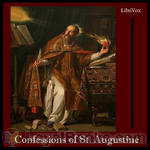 Confessions
Confessions
Confessions (Latin: Confessiones) is the name of an autobiographical work, consisting of 13 books, by St. Augustine of Hippo, written between AD 397 and AD 398. Modern English translations of it are sometimes published under the title The Confessions of St. Augustine in order to distinguish the book from other books with similar titles, such as Jean-Jacques Rousseau’s Confessions. | |
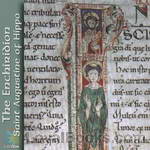 The Enchiridion
The Enchiridion
The Enchiridion, Manual, or Handbook of Augustine of Hippo is alternatively titled, “Faith, Hope, and Love”. The Enchiridion is a compact treatise on Christian piety, written in response to a request by an otherwise unknown person, named Laurentis, shortly after the death of Saint Jerome in 420. It is intended as a model for Christian instruction or catechesis. – As the title indicates, the work is organized according to the three graces necessary for the Christian worship of God: Faith, Hope and Love... | |
By: William Makepeace Thackeray (1811-1863) | |
|---|---|
 The Book of Snobs
The Book of Snobs
The necessity of a work on Snobs, demonstrated from History, and proved by felicitous illustrations:—I am the individual destined to write that work—My vocation is announced in terms of great eloquence—I show that the world has been gradually preparing itself for the WORK and the MAN—Snobs are to be studied like other objects of Natural Science, and are a part of the Beautiful (with a large B). They pervade all classes—Affecting instance of Colonel Snobley. | |
By: Joseph Trienens (b. 1863) | |
|---|---|
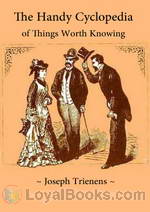 The Handy Cyclopedia of Things Worth Knowing
The Handy Cyclopedia of Things Worth Knowing
Written in 1910, this “cyclopedia” is full of information that was quite useful at the time. A hundred years later, its text is more humorous than practical — although some advice never goes out of style. | |
By: Ambrose Bierce (1842-1914?) | |
|---|---|
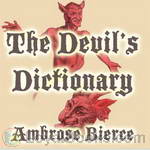 The Devil's Dictionary
The Devil's Dictionary
RESPECTABILITY, n. The offspring of a liaison between a bald head and a bank account. BEAUTY, n. The power by which a woman charms a lover and terrifies a husband. LITIGANT, n. A person about to give up his skin for the hope of retaining his bones. If these caustic definitions catch your fancy, you'd enjoy The Devil's Dictionary by Ambrose Bierce. He was a columnist with the San Francisco News Letter, a weekly paper which was a business publication aimed at the corporate sector. However, it had a column entitled Town Crier which featured satirical asides and comments in a lighter vein... | |
 Write it Right
Write it Right
Witty, opinionated alphabetical examples of what Bierce considered poor (American) English and advice on alternatives – entertaining, thought-provoking, occasionally outdated but so interesting to see how style and taste have changed. | |
By: Hendrik van Loon | |
|---|---|
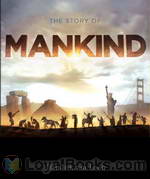 The Story of Mankind
The Story of Mankind
A book that won the Newberry Prize in 1921 for an Outstanding Contribution in Children's Literature, The Story of Mankind, by Hendrik van Loon is indeed a classic that has been enjoyed by generations of children and adults. The book is an engagingly written work, dedicated to the author Hendrik van Loon's two young son's Hansje and Willem. It was created to convey the history of the human race to young people in a way that was interesting, memorable and would spur them onto further research and reading into the subject... | |
By: Olive Green | |
|---|---|
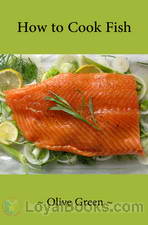 How to Cook Fish
How to Cook Fish
One hundred simple fish sauces. Sixty-five ways to cook mackerel. The Catching of Unshelled Fish. Twenty-seven ways to Cook Frogslegs. Now that should certainly make you reach for your apron and fish knife! How to Cook Fish by Olive Green is a vintage culinary classic, filled with simple, easy to follow recipes rendered in a terse, no nonsense style. There's none of this fiddling with scales, weights and measures. What you get is a mélange of interesting, unusual ways to cook seafood without worrying about lists of ingredients, timings, temperature or any of the conventions followed by traditional cookbooks... | |
By: Vachel Lindsay (1879-1931) | |
|---|---|
 The Art of the Moving Picture
The Art of the Moving Picture
"This 1922 book by poet and sometime cultural critic Vachel Lindsay might have been the first to treat the then-new medium of moving pictures as an art form, one that was potentially as rich, complex, mysterious as far older ones, and whose physical and aesthetic properties were only starting to be understood. The highlight of the book might be “The Motion Picture of Fairy Splendor,” which examines the relationship between film storytelling, magic, myths, legends and bedtime stories. It’s discombobulating, in a good way, to read Lindsay’s attempts to grapple with what, precisely, cinema is... | |
By: Andrew Murray (1828-1917) | |
|---|---|
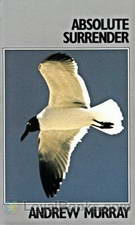 Absolute Surrender and Other Addresses
Absolute Surrender and Other Addresses
This is a series of short messages written by the South African minister, Andrew Murray. They deal with the necessity and joy of surrendering our lives completely to God. | |
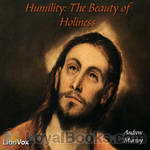 Humility : The Beauty of Holiness
Humility : The Beauty of Holiness
A book on the all importance of humility, how Jesus was humble, and how we also can become humble. Murray wrote “Without humility, there can be no true abiding in God’s presence or experience of His favor and the power of His spirit. Without it there can be no abiding faith or love or joy or strength.” | |
 With Christ in the School of Prayer
With Christ in the School of Prayer
It is under a deep impression that the place and power of prayer in the Christian life is too little understood, that this book has been written. I feel sure that as long as we look on prayer chiefly as the means of maintaining our own Christian life, we shall not know fully what it is meant to be. But when we learn to regard it as the highest part of the work entrusted to us, the root and strength of all other work, we shall see that there is nothing that we so need to study and practise as the art of praying aright... | |
 The School of Obedience
The School of Obedience
Andrew Murray describes the necessity and benefits of absolute obedience to God. He goes on to explain the way to achieve this level of obedience, which is required of all believers, and attainable through God’s provision. | |
By: Thomas Paine | |
|---|---|
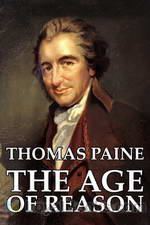 The Age of Reason
The Age of Reason
A Universalist book, The Age of Reason advocates for the existence of natural religion and challenges the structure of all organized religion. First written and distributed as pamphlets, the book was later published into two parts. Paine puts forward his personal beliefs, debating reason and revelation, while analyzing the Bible and the influence organized religion has on society. Exploring topics including natural religion, criticism of corrupt religious institutions, and distinction between rationality and blind faith in the supernatural, the book presents a guide for the conscious and free spiritual thinkers... | |
By: John Stuart Mill (1806-1873) | |
|---|---|
 On Liberty
On Liberty
Published in 1859, On Liberty is a libertarian philosophical work by English philosopher John Stuart Mill that endorses his view on the importance of individuality for the constant progression and improvement of society. The work also supports economic and moral freedom, and openly criticizes the influence of social authority that in one way or another imposes a predefined set of acceptable attitudes and opinions. Highlighting issues including the incongruity between authority and liberty, the oppressive... | |
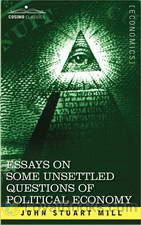 Essays on Some Unsettled Questions of Political Economy
Essays on Some Unsettled Questions of Political Economy
This is Mill’s first work on economics. It foreshadows his Political Economy which was the standard Anglo-American Economics textbook of the late 19th and early 20th centuries. Mill’s economic theory moved from free market capitalism, to government intervention within the precepts of Utilitarianism, and finally to Socialism. | |
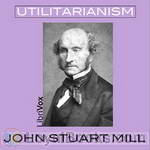 Utilitarianism
Utilitarianism
John Stuart Mill’s book Utilitarianism is one of the most influential and widely-read philosophical defenses of utilitarianism in ethics. The essay first appeared as a series of three articles published in Fraser’s Magazine in 1861; the articles were collected and reprinted as a single book in 1863. It went through four editions during Mill’s lifetime with minor additions and revisions. Although Mill includes discussions of utilitarian ethical principles in other works such as On Liberty and The Subjection of Women, Utilitarianism contains Mill’s only major discussion of the fundamental grounds for utilitarian ethical theory. | |
 The Subjection of Women
The Subjection of Women
The Subjection of Women is the title of an essay written by John Stuart Mill in 1869, possibly jointly with his wife Harriet Taylor Mill, stating an argument in favor of equality between the sexes. It offers both detailed argumentation and passionate eloquence in opposition to the social and legal inequalities commonly imposed upon women by a patriarchal culture. Just as in “On Liberty,” Mill defends the emancipation of women on utilitarian grounds, convinced that the moral and intellectual advancement of women would result in greater happiness for everybody. | |
 Considerations on Representative Government
Considerations on Representative Government
Mill's volume was published in 1861 as an argument favoring this form of governance. Mill covers what forms of government work best, including when representative government is applicable and when not. He details appropriate functions of representative bodies and warns of problems to avoid. He distinguishes between true and false democracy. Other areas covered include how voting is carried out, the role of a second chamber in Parliament, and how an executive branch might function. | |
 Auguste Comte and Positivism
Auguste Comte and Positivism
Part 1 lays out the framework for Positivism as originated in France by Auguste Comte in his Cours de Philosophie Positive. Mill examines the tenets of Comte's movement and alerts us to defects. Part 2 concerns all Comte's writings except the Cours de Philosophie Positive. During Comte's later years he gave up reading newspapers and periodicals to keep his mind pure for higher study. He also became enamored of a certain woman who changed his view of life. Comte turned his philosophy into a religion, with morality the supreme guide. Mill finds that Comte learned to despise science and the intellect, instead substituting his frantic need for the regulation of change. | |
By: Sir John Barrow (1764-1848) | |
|---|---|
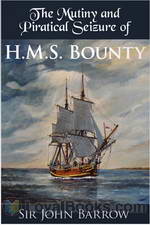 Eventful History of the Mutiny and Piratical Seizure of H.M.S. Bounty
Eventful History of the Mutiny and Piratical Seizure of H.M.S. Bounty
On December 31 1787, the HMS Bounty, a small sailing vessel embarked from Spithead Harbor, England bound for Tahiti. Her mission was sponsored by the Royal Society in London and aimed at picking up breadfruit plants and fruit from Tahiti and conveying them to the West Indies, where it was hoped they would take root and become a commercial crop. The Bounty was an old ship with a young captain and 46 young officers. The captain's cabin was converted into a potting shed for the expected breadfruit cargo... | |
By: Adam Smith (1723-1790) | |
|---|---|
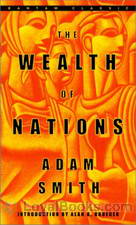 The Wealth of Nations
The Wealth of Nations
Adam Smith’s “The Wealth of Nations” gives an in-depth discussion of different economic principles like the productivity, division of labor and free markets. Although written and published more than 200 years ago, it’s still hailed as one of the most original works in the field of economics and is still used as a reference by many modern economists. “An Inquiry Into the Nature and Causes of the Wealth of Nations” is the complete title of this book and it was first published in 1776, the same year that the American colonies declared their independence from Britain... | |
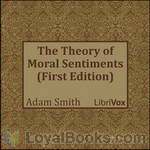 The Theory of Moral Sentiments (First Edition)
The Theory of Moral Sentiments (First Edition)
“How selfish soever man may be supposed, there are evidently some principles in his nature, which interest him in the fortunes of others, and render their happiness necessary to him, though he derives nothing from it, except the pleasure of seeing it.” (from The Theory of Moral Sentiments) Adam Smith considered his first major book, The Theory of Moral Sentiments, his most important work. Indeed, the tome was a wild success upon its publication, selling out immediately. It has not lost popularity since... | |
By: Bill Nye | |
|---|---|
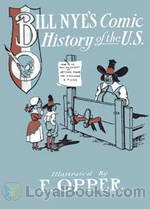 Comic History of the United States
Comic History of the United States
For American journalist and humorist Edgar Wilson Nye who wrote under the pen name Bill Nye in the late 19th century, facts are not to be presented in their newborn, bare state. They should be properly draped and embellished before they can be presented before the public. Hence, in the Comic History of the United States published in 1894, he gives his readers the facts. But in a bid to make the historical figures more human he describes them as “people who ate and possibly drank, people who were born, flourished and died, not grave tragedians posing perpetually for their photographs... | |
 Comic History of England
Comic History of England
If you thought history was dull, dry and boring, you haven't read Bill Nye's books! He brings wit, humor, satire, irony and sheer nonsensical fun into the subject, making it both entertaining and memorable. The Comic History of England was published posthumously in 1896 after the writer's tragic and untimely death half-way through the project. Hence it remains incomplete and covers the history of the island nation only up to the Tudor period. However, beginning with Julius Caesar, the Roman invasion of Britain, the Druids and Stonehenge, this book is still a rib-tickling ride through the centuries... | |
By: Nellie Bly (1864-1922) | |
|---|---|
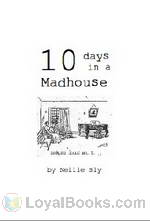 Ten Days in a Madhouse
Ten Days in a Madhouse
Long before Christiane Amanpour, Frances Fitzgerald and Martha Gellhorn blazed a trail in courageous investigative journalism, a pioneering and intrepid writer and journalist whose pen name was Nellie Bly opened up a whole new field in what had previously been a strictly male domain. Ten Days in a Madhouse was published as a series of articles in the New York World during 1887. Nellie Bly was given the assignment by her editor to have herself committed to an insane asylum in New York with a “view to writing a plain and unvarnished narrative of the treatment of patients therein and the methods of management... | |